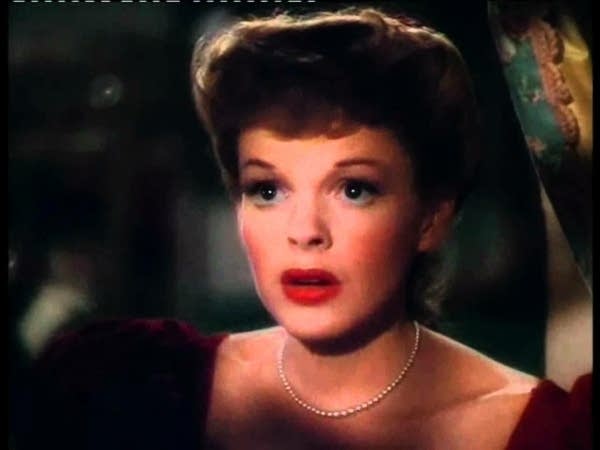Why is Christmas music so depressing?

December 24, 2014
It's the most melancholy time of the year! Have yourself a bleak little Christmas. Jingle bells, jingle bells, we're all going to hell.
If you read between the lines of so many of our most beloved Christmas classics, there is an undeniable darkness at the core of the holiday canon that is supposed to bring us so much light.
When I sat down with my colleague Jay Gabler to program our holiday music special that aired earlier this week on the Local Current stream, we dug deep into our local music library and unearthed one depressing holiday-themed ballad after another. Some were originals penned just for the season about longing for youth, contemplating the virtues of old toy train sets and sipping untold amounts of whiskey, while others were somber and reverent covers of the most harrowing Christmas classics.
As we dug deeper into the catalog, we found ourselves breaking out in fits of laughter about how hard it was to put together a joyful playlist. While we were able to keep the first hour or two of our program relatively upbeat, the final hour took a dark turn as we had no choice but to stack up all of the most soul-crushing ditties for the final stretch. We started to wonder: why was so much of our holiday library so bleak? And why does it feel so good to sing and listen to sad music at this time of year?
At his show in the First Avenue Mainroom last weekend, Jeremy Messersmith concluded his encore with an especially dreary cover of "Have Yourself a Merry Little Christmas," dredging up the original lyrics of the song and singing them over the melody we all know so well:
Have yourself a merry little Christmas
It may be your last
Next year we may all be living in the past
Have yourself a merry little Christmas
Pop that champagne cork
Next year we may all be living in New York
"The original version was so lugubrious that Judy Garland refused to sing it," said the song's composer, Hugh Martin. Although he was eventually forced to change it to "jollier" lyrics, he felt that the original words spoke to the mood of the early 1940s, with the country just coming out of the Great Depression and heading into war. And looking back, that's a time period when a lot of our favorite holiday classics were written; according to a chart of the top 30 most-played Christmas songs published by the Washington Post this week, we still tend to prefer the tunes from the '40s and '50s over all the holiday music written before that period and in the time between then and now.
The web comic XKCD jokes that the reason we prefer these decades-old tunes is because we are perennially catering to the nostalgia of the Baby Boomer generation, and that we play these old '50s classics to help recreate the memories of their childhood. But I would argue that the nostalgia present in so many of our secular year-end traditions goes beyond our age or experience; with the Christmas holiday sandwiched between the winter solstice and New Year's Day, it tends to be a time of deep reflection regardless of your religion or whether you choose to celebrate the day at all.
Like any consumerism-driven event, there is a lot of build-up and expectation surrounding Christmas that we can't possibly meet each year. There is an endless string of holiday-themed movies, commercials, magazine covers, and billboard advertisements that stress the importance of togetherness, joy, and Christmas "magic," and an underlying message that we are not properly participating in the season if we don't find and create a little magic for ourselves.
But what if we can't find that perfect holiday? What if our family members don't actually get along all that well, or if we've lost someone who is important to us, or we're spending the week alone? What if our childhood wasn't so great after all, and recreating it sounds like the worst? Or what if we simply don't care all that much, and would rather read a book or take a nap rather than baking yet another cookie and trimming yet another tree?
I think a lot of holiday music was made to meet us in this space between what we feel like we're supposed to do on Christmas and how our life actually plays out. And I think that's why I've found myself gravitating to so much of the sadder side of the holiday canon over the years. Because it's okay if Christmas isn't perfect. Life isn't perfect. I'd much rather embrace the full range of emotions that come up at this time of year and have a blue, blue Christmas with you.

